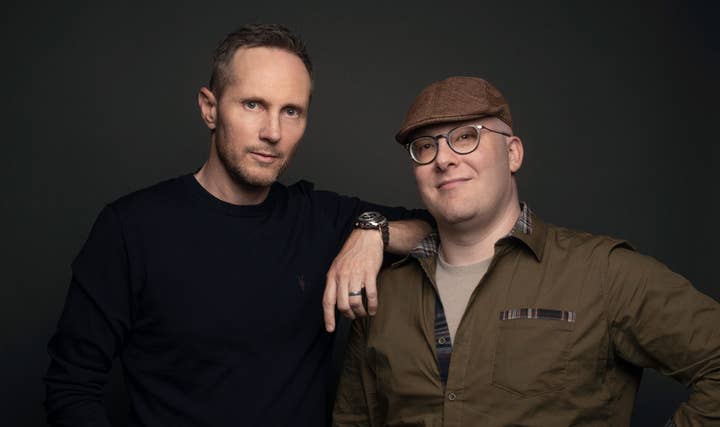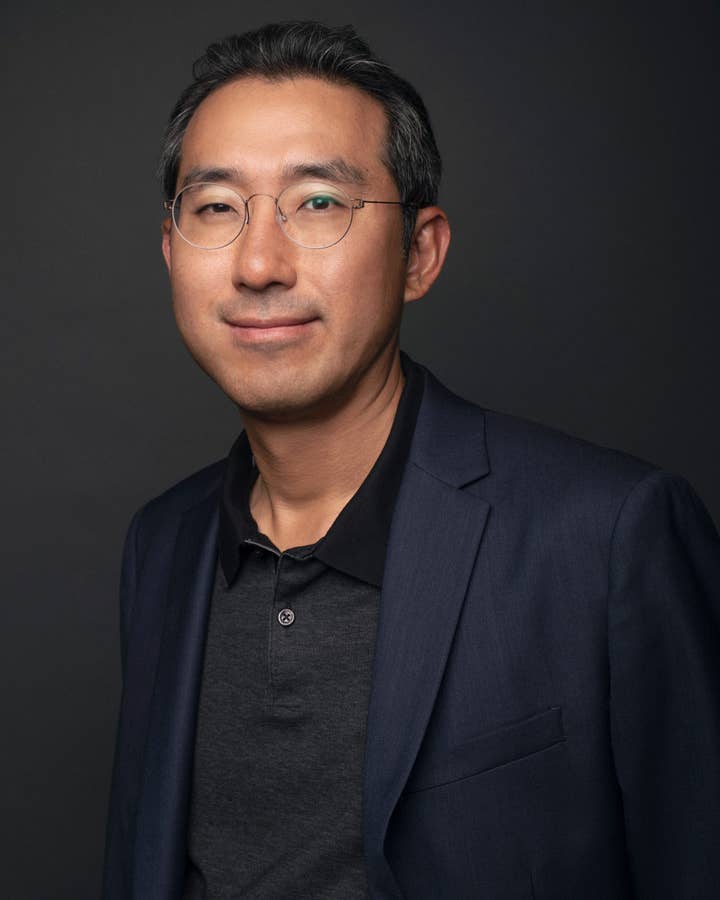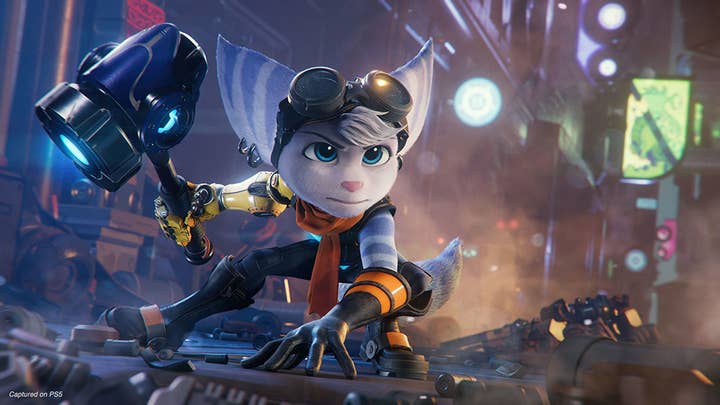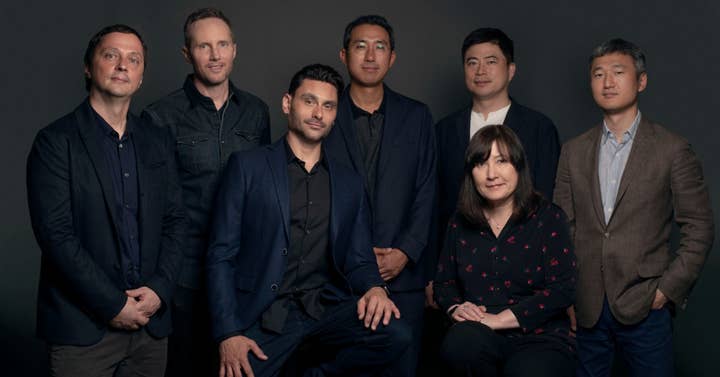Why Smilegate poured $100m into That's No Moon and its AAA veterans
Veterans of Naughty Dog, Infinity Ward, Bungie and Sony Santa Monica also hope their new IP will span other forms of entertainment
Let's get the obvious out of the way: yes, the name is a Star Wars reference.
The team at That's No Moon, a new Los Angeles-based developer that emerged from stealth today, chose the company moniker as a nod to a "great moment in entertainment that ignited people's imaginations and delivered something truly unexpected" -- because that's exactly what it hopes to build.
"We wanted [the name] to be impactful, the start of something big," CEO Michael Mumbauer tells GamesIndustry.biz. "We want players to think about our narrative experiences long after the game credits roll and they put the controller down."
Even so, he's talking about a moment in a story that revolutionised its industry -- but Mumbauer and his team sound no less ambitious when it comes to their plans for games. And when you see the collected works of its initial employees, it's easy to understand why.
Mumbauer himself was previously head of PlayStation's Visual Arts group, having contributed to various titles from the Ratchet & Clank, God of War, and Uncharted series and even credits for assisting with Returnal and last year's Ghost of Tsushima and The Last of Us Part 2.

Alongside him, he has veterans from studios such as Naughty Dog, Infinity Ward, Bungie, Electronic Arts and Sony Santa Monica, which was responsible for the 2018 God of War revival.
That's No Moon's first title will be led by creative director Taylor Kurosaki, who previously served as narrative design lead at Naughty Dog and studio narrative director at Infinity Ward, and game director Jacob Minkoff, previously lead designer on The Last of Us -- and it's Left Behind DLC -- and design director for 2019's Call of Duty: Modern Warfare.
The studio has actually been operating for around six months and currently stands at just under 40 people, with a goal of reaching 100 by the end of 2022. It plans to specialise in AAA story-driven titles, with its first set to be a third-person action adventure, although its ambitions stretch beyond video games (more on that later).
As with Kurosaki and Minkoff, there's a lot of crossover when it comes to where people have worked, and Mumbauer says this has helped That's No Moon feel like more than your typical startup.
"This is, to some degree, kind of bringing the band back together with all of these people who have been working together for, in some cases, decades," he says.
"There's never been a better time to start something new. The games industry just keeps growing exponentially. Every time there's a need for some kind of reinvention of industry, the top talent gets together and tries to evolve or revolutionise those industries. You can see it in film with DreamWorks, in comics with Image Comics, or in music with Interscope [Records] and Aftermath [Entertainment]. I feel like that's where we are right now. We're at a point in the industry where there are a lot of big things happening, and we want to use our collective experience to do something new."
The prospect of disrupting the AAA space has also helped convince members of the team to leave long-running and highly successful studios -- something that, for industry veterans in their 40s is a "big consideration," says Mumbauer. The goal here is not just to compete with their former employers, but to surpass them and elevate the already impressive quality of AAA blockbusters.
"Smilegate's goal is to become a global player in the industry. We have been doing well in the competitive gaming space but what we lack is the storytelling element"
Harold Kim, Smilegate
"We're a talent-driven industry, and the talent That's No Moon has was literally at the beginning of what you see as the modern narrative single-player experiences," Mumbauer explains. "Taylor and Jacob were both instrumental in delivering and designing the holistic story and game design philosophies as early as Uncharted 2, and then in The Last of Us, which I think made a tremendous change in our industry.
"We're so fortunate to have so much talent from those studios. What we haven't lost is our desire to compete and to make great entertainment, the best-in-class games. You need that kind of spirit and desire... When you look at the disruptors in other industries like Image Comics, which I think is a perfect example. The industry changed for the better -- so much visual quality, so much storytelling came from these amazing pioneers that were building that at Marvel. We're doing the same thing, we're taking the best talent in our space and pulling them all together to form something completely new, and look at things completely differently."
Starting such a studio, and affording to hire such experienced developers, is no small feat and for this, Mumbauer and his colleagues managed to convince Smilegate -- the South Korean games giant behind Crossfire and upcoming MMO Lost Ark -- to invest heavily in them. Very heavily, in fact, with $100 million already poured into the company.
Harold Kim, Smilegate's vice president of business development, says: "Smilegate's goal is to become a global player in the industry. We have been doing well in the competitive gaming space but what we lack is the storytelling element. Smilegate's goal in expanding into Western [markets] is [about] how we strengthen our storytelling element. Los Angeles [where That's No Moon is based] has Hollywood and the film industry, which also has a tremendous amount of storytelling experience."
Mumbauer adds: "Smilegate wants a developer to bring its name to the West, I think we can do that. The amount of money they are investing in a new start-up is really unprecedented. If you haven't been a team for long and you haven't shipped a game, there's more trepidation. But [Smilegate] saw the calibre of talent, the spirit and passion of the team, and Harold really championed this deal from the start. We call this the 'impossible deal'... but when you see the talent, you'll see what this studio has out of the gate and I think it's really incredible."

Details on That's No Moon's debut title are under wraps for now, although Kim suggests it will tell "a very positive story, giving an uplifting message but also being very thought-provoking."

Meanwhile, the official announcement of the studio refers to projects that "span interactive and linear media." It's easy to assume this means the developer hopes to build an IP that invites TV and film adaptations, but Mumbauer tells us the ambition is slightly different and firmly centred in games -- something now possible by the advances in games technology.
"Look at a game like Ratchet & Clank [Rift Apart] -- it almost looks like a real-time Pixar movie," he offers by way of example. "There's so much more we can do now because we've arrived at a place where characters and the assets that we've created in the games can walk out of the interactive space and into the linear space in exactly the same form. They don't have to be adapted. So our stories can expand out and we can expand our audiences and tell more meaningful, powerful, connected stories, not unlike the way Marvel does.
"The game is a story, and we're making these grounded, empathetic characters you can relate to. If we do our job well, you will love the characters and the story so much that you'll just want to see more -- more stories, more time with the characters -- either in a sequel or in another medium."
Again, Mumbauer points specifically to the involvement of Kurosaki and Minkoffi and the aim to elevate narrative in the AAA space. He emphasises that everyone on the team has input -- "everyone's a storyteller," he says -- but this duo is most definitely a guiding hand.
"At the centre you have these successful and prolific creators who are directing very specific new mechanics and story opportunities -- I can't get into the specifics of it without telling you everything, but what I can say is they're all evolutions of the language that was developed by these creators for over a decade," he says. "Just wait -- I know that's tough -- and I think you'll really start to see what we're talking about."
"Our stories can expand out and we can expand our audiences and tell more meaningful, powerful, connected stories, not unlike the way Marvel does"
Michael Mumbauer, That's No Moon
That's No Moon's CEO talks of creating a "cohesive universe for a new generation" and one that "[unifies] the East and West in terms of audience."
This, Kim adds, is the long-term vision and another key motivation behind Smilegate's involvement. But both stress that the current priority is to build a best-in-class, narrative-driven, third-person action adventure game first.
The need for caution is understandable. Mumbauer and his crew are far from the first AAA developers to leave established studios in the hopes of going it alone. The past few years have seen more than a few promising new companies open their doors -- and a handful have had to close them. Recent examples include Cliff Bleszinski's Boss Key Productions or V1 Interactive, the studio of former Halo devs whose debut title Disintegration failed to gain traction.
Mumbaeur counters these examples with a more successful studio: Respawn Entertainment. Another company formed by veterans with a shared history and, following the acclaim garnered by Titanfall and its battle royale spin-off Apex Legends, gained even more attention with Jedi Fallen Order.
"That was such an incredible success for EA, which was moving towards games-as-a-service, that they're now rethinking the single-player model because it sold spectacularly well," says Mumbauer, no doubt thinking of last week's announcement of a Dead Space remake.
"The reality is if you put a bunch of people who worked together with a passion for the art and a clear goal, there's a high probability of success. But it's no different than any other industry -- of course there are risks, but I think we're a studio with a very clear understanding of what's in front of us and we know how to build games in this genre."

Kim adds: "Smilegate knows how to do the service model, we've been doing that well not just from Crossfire but also with a number of other games. We're trying to create a long-sustaining entertainment business here, and one way to do that is the service model. But the other way is how do we make a memorable story and experience that people get attached to."
The studio also launches at an interesting time, where the conduct of AAA developers is under particular scrutiny. Mumbauer himself steers the conversation towards the ongoing backlash against Activision Blizzard following a lawsuit for harassment and discrimination, and comments on how it has underlined the importance for That's No Moon to raise the bar in other ways.
"We're not a new industry anymore," he says. "Games have been around 25, 30 years and there's really no excuse for bad behaviour. We want to be part of a respect revolution, we don't have the old walls of these cultural ideals that you have to work against -- we're starting something new and we want to set an example for best practices and respect in the workplace."
With so much AAA talent on the team, it's possible there are other experiences and insights at That's No Moon, but Mumbaeur can only comment on his own time at major studios.
"In all honesty, I've been very fortunate," he says. "I've worked at several big studios and the cultures I've experienced have been very good. But it's not that I haven't seen the behaviours... I think it happens, and the key is to do better. Personally, as a leader at Sony for 30 years, I always valued inclusivity and respect in the workplace, and I cared about my team -- that was my family. To me, when you go to work, you should treat everyone as if they're your family and how you would treat them at home -- hopefully you're coming from a home that's a place of respect. That's just something we need to model for the industry."









